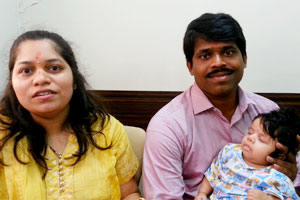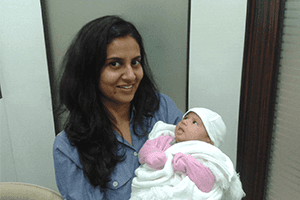Fertility hormones are such an important part of the reproductive system that even a slight imbalance in hormone levels can alter your fertility level and ovulation in particular; hormonal imbalance is therefore a major cause of infertility. Female infertility is often caused by a woman’s inability to ovulate or release an egg. Failure to ovulate is usually rooted in hormonal problems.
In many infertility cases, a woman may be producing too little of one hormone or too much of another. For example, if ovarian stimulation during the follicular phase is not sufficient, an insufficient number of follicles will develop and a mature egg will not be released. Most hormonal causes of infertility can be identified by carrying out blood tests and may be treated by infertility treatments such as ovulation induction and IVF.
The most common female infertility problem that is related to hormones is polycystic ovary syndrome (PCOS), which affects roughly one in 10 women and can be identified by carrying out an ultrasound scan.
There are three areas of your body that may cause hormonal deregulation which could result in hormonal imbalance and infertility:
- The hypothalamus
The hypothalamus is the area of the brain that controls body temperature, hunger and thirst. Gonadotropin releasing hormone (GnRH) is produced by the hypothalamus; this regulates the release of luteinizing hormone (LH) and follicle stimulating hormone (FSH).
- The pituitary
The pituitary is a small gland situated at the base of the brain which responds to hormonal signals from the ovaries and the hypothalamus. Follicle stimulating hormone (FSH) and luteinizing hormone (LH) are produced by the pituitary gland. Deregulation of the hormonal secretions of the pituitary gland affects about 10% of women who suffer from anovulation.
- The thyroid gland
The thyroid is situated in the neck and its function is essential to fertility as well as being very important to your general well-being. If you do have thyroid problems, it is imperative to have them regulated prior to achieving pregnancy. If your thyroid is still off kilter during pregnancy, this may affect the welfare of your baby.
Ovulatory Disorders
Problems with ovulation are one of the leading causes of female infertility, accounting for about 20% of cases. Some women ovulate irregularly or do not ovulate at all (this is called anovulation). When women have problems with ovulation it’s usually because they have hormonal imbalances such as too much prolactin (a milk-producing hormone that suppresses ovulation) or an overproduction of male hormones (androgens, such as testosterone).
Visit our clinic or consult our doctors online for a detailed assessment.








I would like to know more about your treatments .im 35 years old. I have a 12 year old daughter but couldn’t have more children after that. I did IvF in South Africa and didn’t work. My eggs are poor quality and I’m insuline resistant . I think those are my main problems . But would like to visit Mumbai soon and maybe visit the clinic. Please send me more information about your treatments .thank you Sheimin